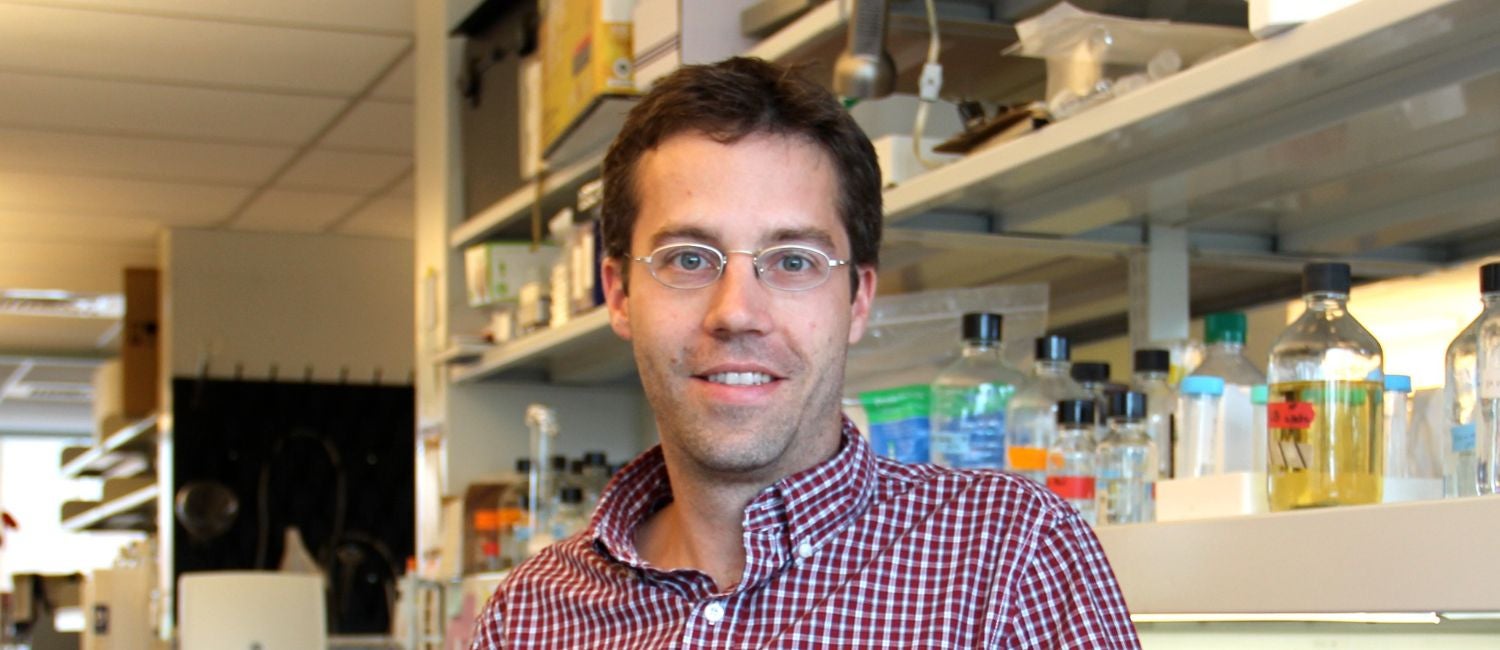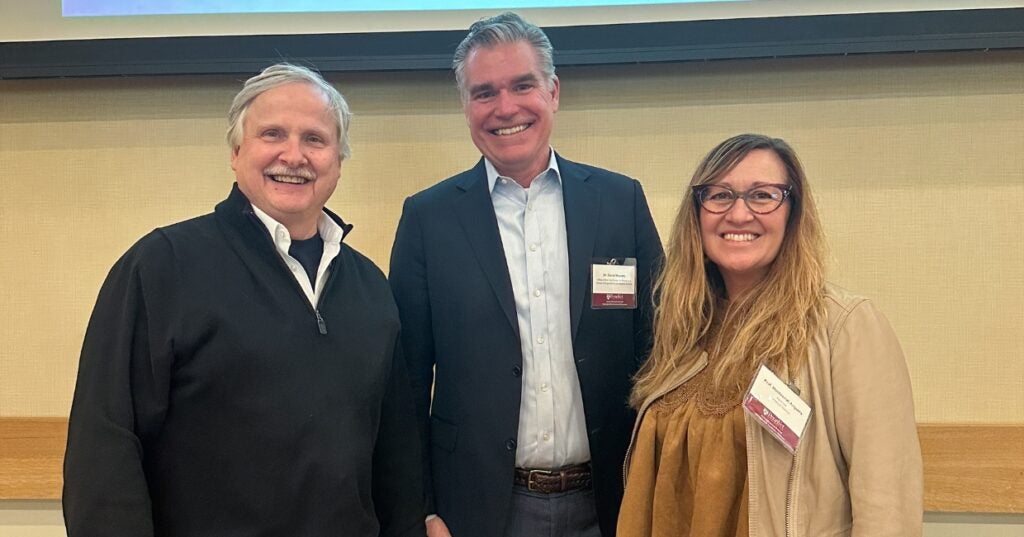Penn Vet Names Christopher J. Lengner, PhD, Chair of the Department of Biomedical Sciences

Andrew M. Hoffman, DVM, DVSc, DACVIM, Gilbert S. Kahn Dean of the School of Veterinary Medicine at the University of Pennsylvania (Penn Vet) has announced the appointment of Christopher J. Lengner, PhD, as the Chair of the Department of Biomedical Sciences effective July 1, 2023.
Lengner, who will also be promoted to full professor effective July 1, is the Harriet Ellison Woodward Associate Professor and director of Penn Vet’s Center for Animal Transgenesis. He is also an associate professor in the Department of Cell and Development Biology at the Perelman School of Medicine (PSOM). He has served as the associate director of the University of Pennsylvania’s Institute for Regenerative Medicine since 2017.
A graduate of the Worcester Polytechnic Institute, Lengner received his PhD from the University of Massachusetts Medical School, and then went on to become a Ruth Kirschstein Post-Doctoral Fellow at the Whitehead Institute at MIT in the lab of Rudolf Jaenisch. As a postdoc, he made seminal contributions to the field of epigenetic reprogramming in the generation of induced pluripotent stem cells – knowledge which is now broadly applied in disease modeling and development of cell-based therapies.
Lengner joined Penn’s faculty in 2011 as assistant professor. In 2017 he was named associate professor, and he was appointed as a Penn Fellow in 2019. He is a member of the PSOM’s NIH P30 Center for Studies in Digestive and Liver Diseases, and the Tumor Biology Program of the Abramson Cancer Center. Lengner’s lab employs genetic and genomic tools in mice and in human organoid culture models to understand the molecular mechanisms that govern stem cell self-renewal, and how those mechanisms become dysregulated in disease states, particularly cancer. His research has appeared in over 100 peer-reviewed publications including in leading journals such as Cell Stem Cell, Gastroenterology, and Cancer Cell.
“Dr. Lengner’s accomplishments as a scientist, educator, and mentor, and his expertise in the fields of stem cell and cancer biology make him an ideal fit to lead the department forward and serve as a key member of the School’s leadership team,” said Hoffman.
Lengner succeeds Ellen Puré, PhD, Grace Lansing Lambert Professor of Biomedical Sciences, who has successfully led the department for a decade. Puré will return to the Biomedical Sciences faculty, and she will continue to serve as director of Penn Vet’s Cancer Center.
“It’s truly an honor to be selected to lead one of veterinary medicine’s premier basic biomedical research departments” said Lengner. “I look forward to serving the accomplished Biomedical Sciences faculty and fostering collaboration in a wonderfully collegial department which makes extraordinary scholarly contributions using molecular, genetic, and biochemical approaches to address fundamental questions in germ and stem cell biology, tissue regeneration, and cancer. The Department serves to bridge veterinary medical education with the broader biomedical research enterprise at the University, helping to place Penn Vet among the best research centers in the field.”
Related News

Penn Vet’s Annual Research Retreat Calls for the Power of Synergy in Challenging Times
Noting the challenges ahead, but celebrating the many breakthroughs at hand, the University of Pennsylvania School of Veterinary Medicine (Penn Vet) community gathered for their 31st annual Research Retreat held…

Penn Vet’s Next Gen Biomedical Scientists Present Their Research at the Annual Veterinary Scholars Symposium
Two dozen budding Penn Vet scientists presented a rich array of ambitious biomedical research projects at the annual Veterinary Scholars Symposium held last month in Spokane, Washington.

Breakthrough Discovery Reveals How Connection Between Mitochondrial Vulnerability and Neurovasculature Function Impacts Neuropsychiatric Disease
Research from University of Pennsylvania School of Veterinary Medicine and Children’s Hospital of Philadelphia suggests that repurposing a cholesterol drug may benefit 22qDS patients with neuropsychiatric disease
About Penn Vet
Ranked among the top ten veterinary schools worldwide, the University of Pennsylvania School of Veterinary Medicine (Penn Vet) is a global leader in veterinary education, research, and clinical care. Founded in 1884, Penn Vet is the first veterinary school developed in association with a medical school. The school is a proud member of the One Health initiative, linking human, animal, and environmental health.
Penn Vet serves a diverse population of animals at its two campuses, which include extensive diagnostic and research laboratories. Ryan Hospital in Philadelphia provides care for dogs, cats, and other domestic/companion animals, handling more than 30,000 patient visits a year. New Bolton Center, Penn Vet’s large-animal hospital on nearly 700 acres in rural Kennett Square, PA, cares for horses and livestock/farm animals. The hospital handles more than 6,300 patient visits a year, while our Field Services have gone out on more than 5,500 farm service calls, treating some 22,400 patients at local farms. In addition, New Bolton Center’s campus includes a swine center, working dairy, and poultry unit that provide valuable research for the agriculture industry.

